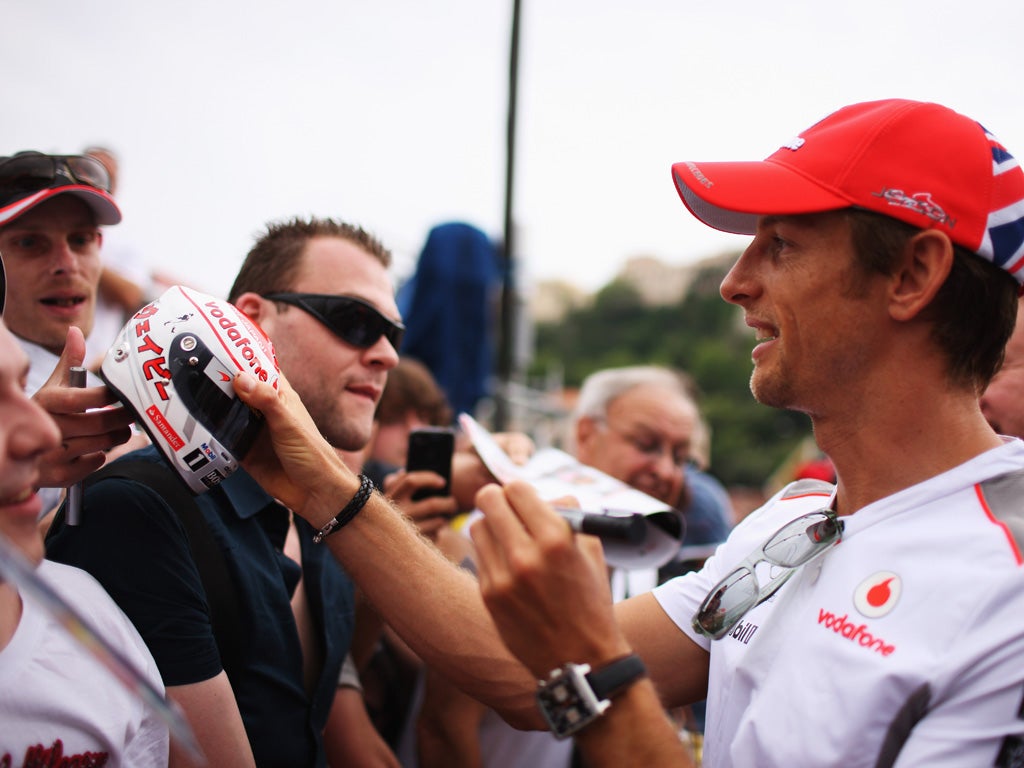Why is this season so tight at the top?
David Tremayne in Monaco explains the reasons we have had five different winners so far

Your support helps us to tell the story
From reproductive rights to climate change to Big Tech, The Independent is on the ground when the story is developing. Whether it's investigating the financials of Elon Musk's pro-Trump PAC or producing our latest documentary, 'The A Word', which shines a light on the American women fighting for reproductive rights, we know how important it is to parse out the facts from the messaging.
At such a critical moment in US history, we need reporters on the ground. Your donation allows us to keep sending journalists to speak to both sides of the story.
The Independent is trusted by Americans across the entire political spectrum. And unlike many other quality news outlets, we choose not to lock Americans out of our reporting and analysis with paywalls. We believe quality journalism should be available to everyone, paid for by those who can afford it.
Your support makes all the difference.A little bit of history will be made in Monaco tomorrow, provided that Jenson Button, Fernando Alonso, Nico Rosberg, Sebastian Vettel and Pastor Maldonado have the decency to avoid being the first to greet Prince Albert afterwards.
If either Lewis Hamilton, Kimi Raikkonen, Michael Schumacher, Mark Webber or Romain Grosjean wins, for the first time in the Formula One World Championship's history there will be a sixth different winner in the first six races.
Only three times in the past 62 seasons have five different drivers won the opening five races – Pedro Rodriguez, Denny Hulme, Jim Clark, Dan Gurney and Jack Brabham in 1967; Emerson Fittipaldi, Carlos Pace, Jody Scheckter, Jochen Mass and Niki Lauda in 1975; and Nelson Piquet, John Watson, Alain Prost, Patrick Tambay and Keke Rosberg in 1983.
Aerodynamic changes – particularly the ban on double diffusers – have levelled the playing field this year, but the real head-scratcher is finding the elusive sweet spot of the Pirelli tyres. They operate in a very small window of optimal temperature, and are so sensitive that half a pound of pressure was the difference between Jenson Button struggling in Friday morning practice in Spain recently, and then dominating in the afternoon. Small wonder the man with a reputation for being easy on his rubber said he just did not understand why he could not better ninth place in the race.
"We are all terrified that somebody will unlock the secret and win everything," the McLaren driver said on Wednesday. "Unless, of course, that's us!"
Complicating the issue, the tyres' optimal operational condition can change from surface to surface and in different track and ambient temperatures, which is why none of the teams that have won races thus far – McLaren, Ferrari, Mercedes, Red Bull and Williams – have been able to duplicate their superiority elsewhere.
The situation has frustrated Schumacher, but Webber, the winner here in 2010, concedes that the artificial tyre situation has created a fascinating scenario for race fans. F1 is no longer predictable.
"When we had pit stops with refuelling, the races were extremely aggressive," Webber said. "Then we went to no refuelling, so a little bit of an endurance aspect came into it in terms of driving style and pacing yourself. And then we had the change with the Pirellis and that's probably been the biggest change in driving technique in my career.
"There are a huge majority of races when the winners have not been driving at 100 per cent all the time, because you can't. You need to get the car to the end and produce the best lap times that you can for the duration. That's the way it is now. We always have to evolve as the technical side of the sport changes. Personally, I enjoyed the sprint races and refuelling, but the racing was not super-exciting. Now we have something that the fans are really enjoying."
Six of the best: 2012 can make history
Have there really never been six different winners in the first six races?
No, and yes... In 1982 Alain Prost won the South African GP, followed by Nelson Piquet in Brazil, Niki Lauda in the US, Didier Pironi in San Marino, John Watson in Belgium and Riccardo Patrese in Monaco. But... Piquet and second-placed Keke Rosberg were disqualified in Brazil, so Prost actually won that one, too.
Five winners so far in 2012, what is the record?
The highest number of GP winners was 11 in 1982, when Prost, Lauda, Pironi, Watson, Patrese, Piquet, Rene Arnoux, Patrick Tambay, Elio de Angelis, Rosberg and Michele Alboreto all triumphed.
Join our commenting forum
Join thought-provoking conversations, follow other Independent readers and see their replies
Comments